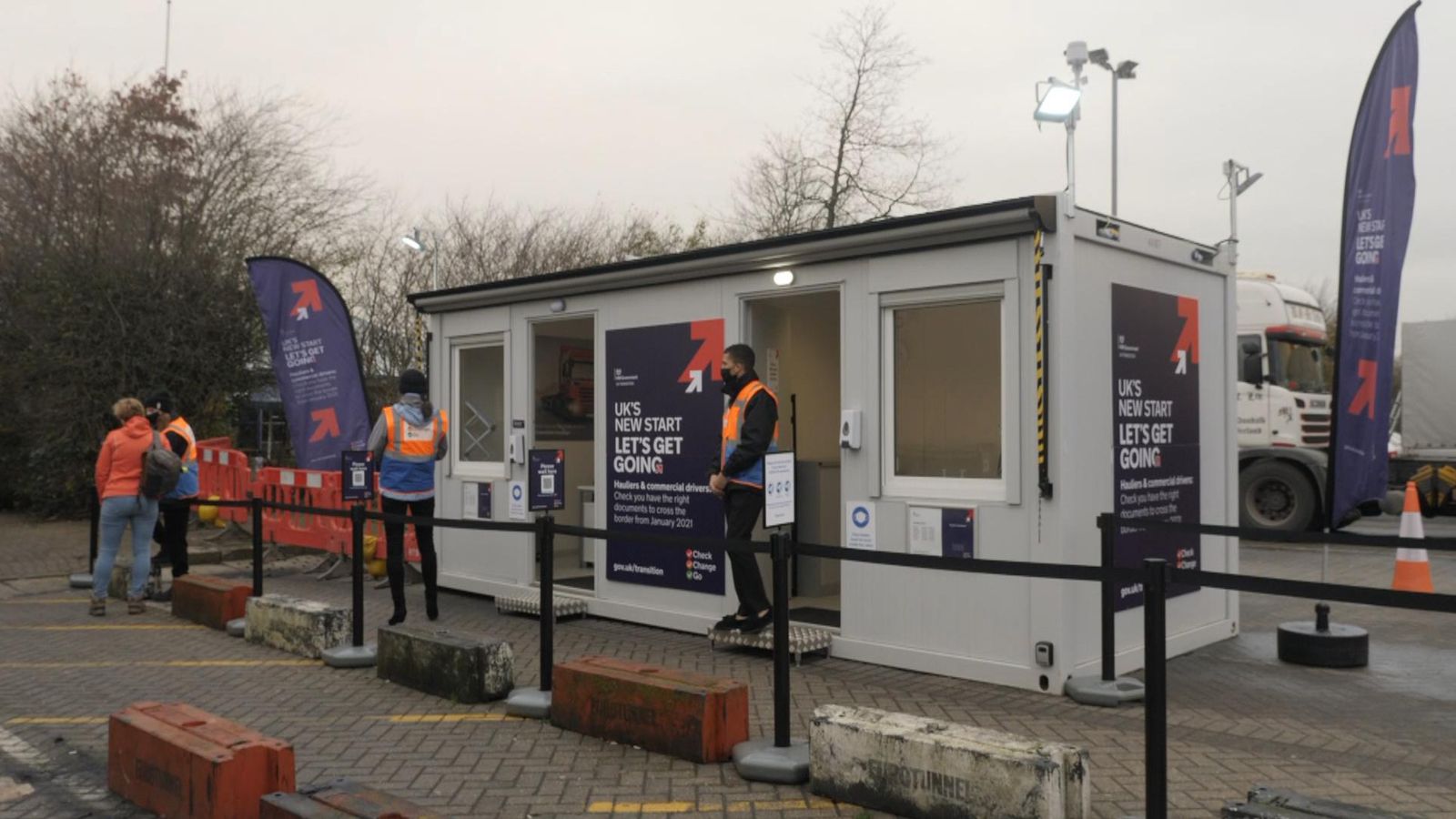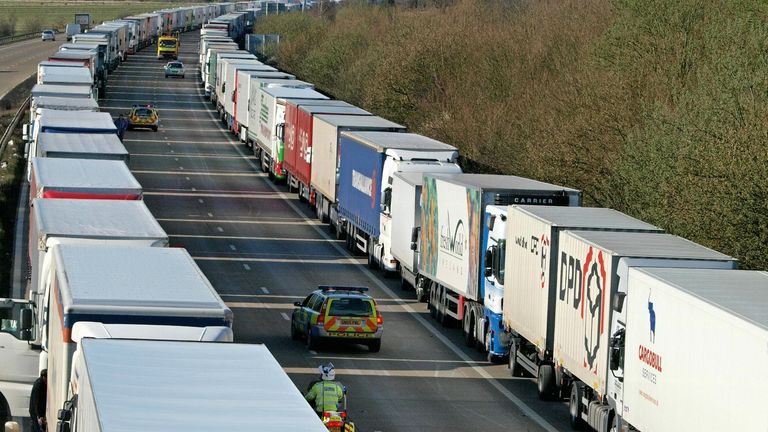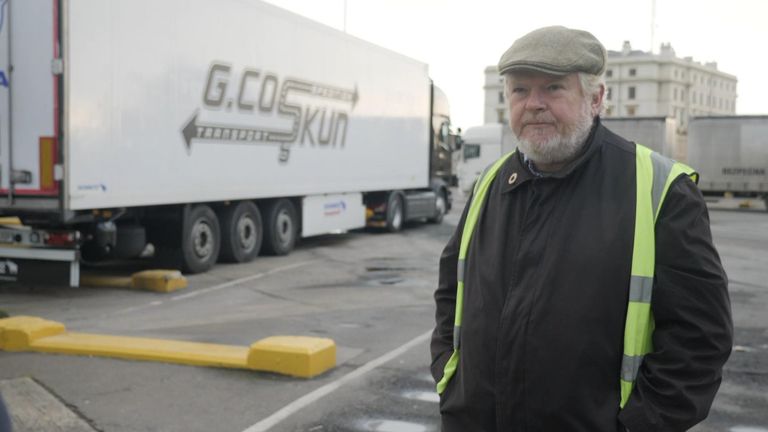After four years of politics and prevarication, Brexit is about to become a test of competence rather than conviction.
And the heart of the government’s effort to meet it is a Portakabin in a lorry park in Ashford, Kent.
It’s one of 45 sites around the country where agents patiently attempt to brief hauliers on impending changes to border arrangements that have applied for a generation.
In less than five weeks, decades of free movement of goods and people, and a generation of harmonised standards and regulation, will end.
In its place, well, we still cannot be sure. Negotiations continue over a choice between no-deal, or a thin free-trade agreement that will be just the starting point for years more discussion.
But irrespective of what finally emerges, the UK’s borders will see a hard reset of rules that have applied throughout the working lives of those that use and police it.
From breezing through borders barely showing a passport, all UK exports to the EU will have to make detailed customs declarations for every consignment they send.
Importers will have to do the same, though not for six months after the UK Government deferred the start of customs controls to July to reduce the risk of chaos.
In total, this new pile of red tape will run to 270 million customs declarations a year, and, in practice, responsibility will fall to hauliers and drivers, 3.5 million of whom cross the short Channel straits into Kent, largely through Dover, every year.
At Ashford, on a grey Thursday with 35 days to go, four agents tried to stop drivers as they made their way for a shower or a meal.
Most stopped to hear them out but very few speak English. The vast majority of drivers are from eastern Europe and often more interested in a hot drink than an iPad demonstration.
Using Google Translate, the agents did their best to walk the drivers through the new system.
But there is another problem. The app they’re demonstrating is not available yet.
Despite having years to prepare, the Government will only release it on or around December 23rd, just eight days before it needs to work.
Without it, or if the paperwork it tracks and coordinates is not completed correctly, lorries will not be able to board boats or trains.
With 13,500 trucks a day passing through Dover, it appears an enormous risk carrying potential for crippling delays.
It’s a risk too far according to the Road Haulage Association, which has described the process as “shambolic” and called on the government to ask the EU to delay full customs checks.
It’s a view shared by John Shirley, a freight forwarder who has been brokering trade through Dover for 25 years.
From his office next to the customs sheds at Dover harbour he foresees chaos, and a potential supply crisis.
He says the UK has no chance of recruiting enough customs agents and clerks to handle the volume of paperwork that will be required, and points out customs currently only has the resources to check 1% of vehicles.
He predicts interruptions to food supplies and manufacturing, not caused just by delays, but by European drivers reasoning that it is no longer worth diverting to the UK.
“We’re using words like petrified, terrified. We don’t use words like that. We are pretty hard bitten business, we lurch from crisis to crisis.
“But we share the view that the hauliers are taking that the sensible thing is not to come here at all. That’s what we are being told in no uncertain terms.
“There’s a shortage of drivers across Europe and they like to do a round trip in a week. In the east, it can take 10 hours to get into the EU in the first place. If it is going to take you days to get back out of the UK and you are stuck here rather than driving it will not be worth their while.”
Deal or no-deal will be able to judge the government’s Brexit plan for real in 35 days. Until then, they will keep briefing the drivers in Kent.



